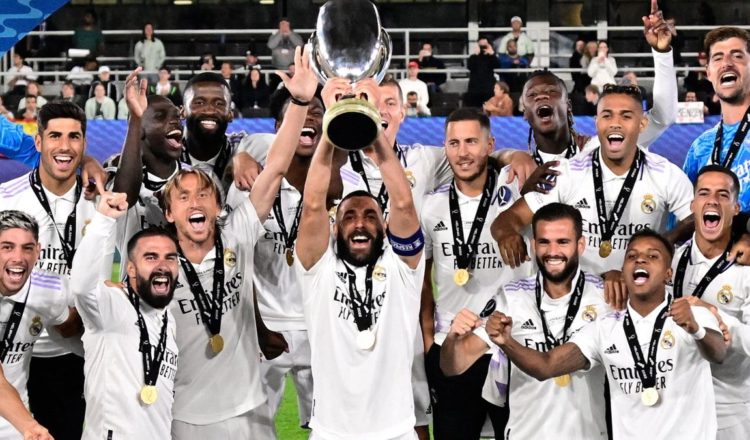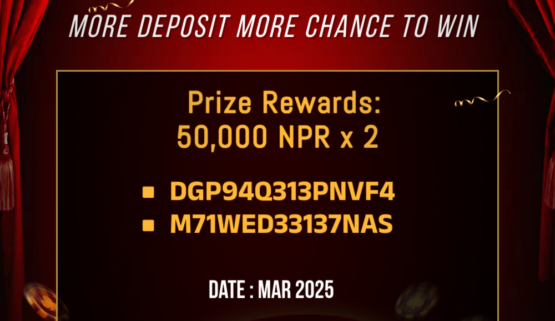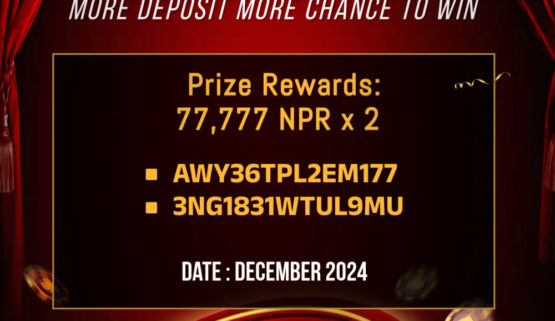
THURSDAY’S BIG STORIES
IF IT AIN’T BROKE
Carlo Ancelotti doesn’t seem a man given to showing off. All football managers have a fairly sizeable ego, of course, otherwise the job would be impossible. The dressing room would eat them alive. And yet Don Carlo, for the most part, lets his eyebrow do the talking.
But that said, there was something impressive and a little bit showy about Real Madrid sending out the same starting XI for last night’s Super Cup as they did for last season’s Champions League final. A flex, of sorts. A message to the rest of Europe’s elite: it’s you that has to do the catching up here. We’re fine. We’re absolutely 100% sorted.
After all, while it hasn’t been a frantic summer at the Bernabeu, they have done a little business. Just some minor tinkering around the edges. Just Antonio Rudiger, one of the best defenders in the Premier League, and Aurelien Tchouameni, one of the most coveted young midfielders in the world.
And there they both were, sitting on the bench, waiting their turn as Madrid did what they do. Luka Modric and Toni Kroos, friction-free in the middle. Karim Benzema, lurking, shooting, scoring. Fede Valverde, playing three positions at once. A smooth and classy engine, every part perfectly balanced and greased, that ticks over with barely a rumble and accelerates through the gears precisely as required.
As for Frankfurt, they managed not to lose 6-1 for the second time in a week, so that has to be considered progress. In a sense, their season begins now: get through Bayern Munich, get through Real Madrid, try and make the best of some normal games of football. But it was a little sad to see Frankfurt lining up with Filip Kostic, whose brilliance did so much to get them to this game. It’s often the way with the Super Cup. One half of this fixture gets to keep all their good players over the summer. The other half gets picked apart.
And what of Roma? The Super Cup is a two-team celebration of what is now, thanks to the Conference League, a three-champion continent. For all that last night’s game had a certain nostalgia value – the first meeting of these two teams since the very first European Cup final – it was hard to escape the thought that a game against Roma might have been a little more fun for the watching neutral. A closer contest for Frankfurt, and a narrative-laden festival of Mourinhology for Madrid.
The obvious solution is for all three teams to play three-sided football. The actual solution, we predict, will be UEFA eventually turning the Super Cup into a triangular tournament, to be hosted somewhere rich and warm each summer, which will have the knock-on effect of folding this trophy fully into preseason and so robbing it of what little prestige it holds now. But whatever happens, we’re pretty confident that Kroos and Modric will still be there, ageless and uncreaking, passing the ball back and forth between them until victory emerges, as it always must.
REVOLVING DOOR
In today’s edition of What The Hell Is Going On At Barcelona, we finally have a partial answer to one of the Warm-Up’s most pressing questions: what exactly happens if Barcelona can’t register all their new signings?
A partial answer, anyway. It appears that the players signed on free transfers – that’s Franck Kessie and Andreas Christensen – have a clause that allows them to immediately reverse course if Barcelona can’t persuade La Liga that they can pay for them. There’s no suggestion that they would want to, of course, though presumably Manchester United have sent Kessie a fruit basket with a little note just in case. (“Dear Insert Name Here. We understand you are a midfielder of some sort. We have a vacancy that might be of interest…”)
It’s been fascinating watching Barcelona this summer, but arguably more fascinating has been the parade of players apparently willing to sign on the dotted line. This is a club, after, that is selling off the future to pay for the past; that is returning over and over to its players and asking them to renegotiate their contracts; and that certainly seems to be conducting an unpleasant propaganda war with any player not willing to fall in line. Nice renegotiated contract you’ve got there, Frenkie. Be a shame if it was… illegal.
And yet, footballers still want to play for this club. To sign up to these strangely flexible contracts. The idea of Barcelona is such a strong and persistent one that it overrides common sense. It’s almost romantic: a reminder that football isn’t just a question of getting paid. The man from Barcelona says “it’s fine, we’re fixing it, we’ve fixed it, it’s fine,” and the heart of the footballer says “oh! that’s all I needed to hear”.
But you have to wonder how a failure to register some or all of these new signings might affect that. For now, the blame for Barcelona’s problems can be shifted backwards onto the previous regime. The old lot broke it, the new lot are fixing it. But a failure here would be a failure of this regime. It would mean that the things that were said over the summer, over the negotiating table, were not precisely true. That, perhaps, might cause footballers to look with a little more scepticism at any future promises.
Which is why it can’t be allowed to happen, of course. Which is why economic lever four will be pulled today, or tomorrow, and then five, six, seven after that if needs be. Barcelona have decided that the way through is to stand up and shout “We are Barcelona!” as loudly as possible, and trust that there is enough resonance in that statement to sell the club, to footballers and investors and sponsors alike. First contact of this theory with reality comes on Saturday, where – with all respect to Rayo Vallecano – what happens on the teamsheet will be much more interesting than anything that happens on the pitch.
MOVEABLE FEAST
Travelling to a World Cup as a fan is two things: complicated, and expensive. Flights are oversubscribed, accommodation prices are swollen, and everything you buy in and near the stadium will have been marked-up beyond recognition. Even before we get onto the particular ethical quandaries surrounding Qatar, a trip to a World Cup is, by all sensible rules of holiday-making, a silly thing to do with your time and money.
Still, at least you get to plan a fair bit in advance. The schedule for Qatar 2022 was set in July 2020 and the confirmed in April of this year, following the draw for the group stages. Indeed, FIFA boasted that “Given the compact nature of Qatar, event organisers were able to assign, for the first time ever, group stage games to a stadium and kick-off time for each matchday after the final draw, optimising the match schedule for the benefit and comfort of spectators, teams, media and the global audience”.
It now seems appropriate that this statement came on April 1st. If, as reported, FIFA do move Qatar vs. Ecuador forward by a day, ensuring that the opening ceremony comes before any fixtures have been played and allowing the hosts to play the first game, as tradition demands, then it won’t be the worst thing about this strange World Cup. It probably won’t crack the top 10.
But it will, we’re betting, play serious and expensive havoc with plenty of Ecuadorian plans, even if FIFA do agree to cover the immediate costs. And more than that, it will have an inescapable symbolic value. A reminder that this is all being made up as we go along; a reiteration of contempt for the poor suckers who actually try to watch this stuff.
On the other hand, tradition is important. And this particular tradition, of the hosts playing the opening game, has been an important part of the World Cup since… since… hang on, since 2006? Oh, come on.
IN OTHER NEWS
Here’s Dennis Adeniran with an early contender for Traction Engine of the Season. Absolutely no business generating that kind of power from that kind of position.
HAT TIP
Jonathan Wilson has a new book out, on the Charlton brothers, and he’s only gone and let the Guardian publish some of it. You can read it for free! Quick, get over there before somebody notices.
It’s a fun excerpt, too, about the feud that developed between Bobby Charlton and George Best as both approached the end of their Manchester United careers. Though “feud” doesn’t quite do it justice: this was a clash of personalities, of styles, and of generations. Charlton, believing that “that young people today seem to shy away from close relationships with their elders because it’s part of a ‘square’ conception of life”, against Best: “I wish I could hear him say ‘fuck’, just once”.
“Bobby’s testimonial, a goalless draw against Celtic, was held on 18 September 1972. Best refused to play, claiming an injury to his right ankle, although he later said to have played would have been ‘hypocritical’. He did turn up to watch but lasted only five minutes before leaving for the Brown Bull. There he sat gloomily at one of the heavy oak tables, drinking and throwing darts and two dozen eggs at a portrait of Bobby that hung on the wall.”
RETRO CORNER
By mysterious coincidence, it’s exactly 32 years since Matt Busby’s testimonial at Old Trafford. The proper 11-a-side game was a 1-1 draw between Manchester United and a Republic of Ireland XI. But the real treat came beforehand: a seven-a-side Manchester derby featuring players from the near and distant past. Skip ahead to the 18 minute mark if you want to see George Best’s last goal at Old Trafford.
COMING UP
A little more European qualifying this evening. And the big question is: can Dundee United, taking a 1-0 lead to AZ Alkmaar, turn their excellent first leg victory into an aggregate win?













